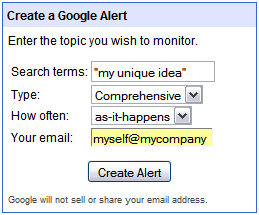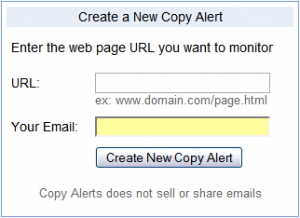One of the biggest and perhaps most frustrating issues facing Web site owners is online plagiarism, which unfortunately runs rampant on the Web in the age of blogs and RSS feeds. Due to the sheer volume of information available on the Internet, and the speed and relative ease to produce it, it can be very difficult to keep track of your site’s content and how it’s being used (or abused) across the Web. For many Web authors, particularly those who consistently produce great content, combating online plagiarism can feel like an uphill battle.
But there are two crucial reasons why you need to be vigilant about finding sites that are stealing your content —your own site’s search engine rankings and SEO efforts and your company’s online reputation are at risk. Google and other search engines penalize Web sites with duplicate or too-similar content and may assign them a lower ranking status. When Google spiders crawl the Web and find sites containing content copied from your site, it may penalize both sites, or worse, completely remove them from its index. In this scenario, plagiarism can definitely have a negative impact on your site’s SEO, and ultimately its traffic and revenue potential. Additionally, your site’s authority and credibility may be weakened in the minds of your site’s visitors if they suspect your content is reproduced from another source they may already have found online.
Fortunately, there are a number of great tools available for free online to help find instances of online plagiarism so that you can issue cease and desist orders. Here are some quick and easy ways to help keep tabs on your content:
- Sign up for Google Alerts. Google Alerts will email you updates of new search results for selected keywords on the Web as they are discovered and indexed by Google. You can set up Google Alerts for keywords such as your name, your company’s name, your unique products and services, or even exact phrases used in your Web site’s copy. As Google discovers new results matching your alert keywords, it will automatically send you an email with a link to the new result. Google Alerts make it easy to stay on top of your intellectual property on the Web.


- Use Copy Alerts. Similar to Google Alerts, Bit Scan Inc. offers Copy Alerts to help detect plagiarism and protect copyrights. Instead of entering unique keywords to monitor, Copy Alerts enables you to enter the URL of any page on your site containing content you wish to keep track of. Copy Alerts will email you if it finds results containing any content suspected of being copied. To manage multiple Copy Alerts, you must sign up for a free account.

- Search the Web using unique phrases. You can use the phrase search function of most search engines by enclosing your search queries in double quotes. This type of search will find results that exactly match specific phrases used in your site’s copy or content. For example, if you recently published a new blog entry, you can enter a unique phrase from your post to see if your content is appearing on any Web sites other than your own.

Suspect that you may have plagiarized? Here’s what you need to do next:
- Take screenshots. Keep an accurate record of the offending site’s abuse by taking screenshots of any and all instances where your site’s content appears to have been plagiarized. Be sure the URL of the offending site is visible alongside the plagiarized content in your screenshot. Continue to take dated screenshots for each day the violation persists, to help validate your case.
- Send a Cease & Desist letter. A Cease & Desist letter can be sent to the owners of the offending site for the purpose of attempting to halt certain behaviors such as copyright or trademark infringement before resorting to legal action. Cease & Desist letters are typically drafted by lawyers, but there is no requirement to do so. Anyone can send a Cease & Desist notification, and there are even downloadable legal form letters online for doing so.
- File a Digital Millennium Copyright Act complaint. The Digital Millennium Copyright Act was established to help combat copyright infringement in the United States, particularly with respect to copyright infringement on the Internet. You can file DMCA complaints against the offending Web site directly, or with various search engines the site’s plagiarized results appear in. For example, Google complies with DMCA complaints and will remove perpetrators from its search index completely if found to be in clear violation. Each search engine has a slightly different process for complying with the DMCA, and care should be taken to follow all procedures exactly for your complaint to be taken seriously.
Plagiarism vs. “Content Recycling”
With so many blogs active on the Web, there is a lot of pressure to produce fresh new content on a regular basis. An unfortunate side effect is the practice of some Web sites to “borrow” content from other sources on the Web without giving them necessary credit. Rather than being plagiarized word for word, recycled content is often a slightly modified version of the original.
The general rule is that all content that is “recycled” for use on another site should include a link back to the content’s original source, as well as a mention. This issue is relatively widespread on the Web, particularly among multiple blogs that all cover the same topic or shared interest.
In most cases, content recycled in this way is actually beneficial to both parties, as it provides fresh material for the borrowing site, and healthy backlinks for the original site. If you discover your content being used on another site, however, without your permission and without any discernible credit, try contacting the offending site’s administrator to demand proper credit and backlinks, or else remove the content in question.
Don’t Let Others Profit from Your Content
Online plagiarism takes visitors, search traffic, and potential revenue, away from your site using the content you created. This practice is tantamount to stealing so it’s important that companies address this issue as part of their Web site strategy. Use the tools mentioned above to see where your content may have been copied on the Web. If you’re interested in reading more or learning about online plagiarism policies and the DMCA, go to the following blogs and online resources:
Digital Millenium Copyright Act
»
Leave a comment
Web Ad.vantage is a full-service online marketing company with core competencies in search engine optimization, PPC Campaign Management and online media buying. Visit our Internet Marketing Services section to learn more about our full range of services.
WebAdvantage.net encourages the reprinting of our marketing tips and articles. Before doing so, however, please contact us at for permission to do so. The company bio located above is required to accompany any reprint. Thank you in advance for your professional courtesy.
Pragmatic, professional advice with no hidden agenda.

Internet Business Forum
 Find out more here
Find out more hereThe Problem With Online Media Measurement Tools
In late February 2008, Google's stock dropped 4 percent in one day after comScore released data suggesting the search giant's click-through rate on paid search ads was... read more
Online Plagiarism: Not the Highest Form of Flattery
One of the biggest and perhaps most frustrating issues facing Web site owners is online plagiarism, which unfortunately runs rampant on the Web in the age of blogs and... read more
Observations: College Students & Social Media
Last night I sat on a panel at Towson University with five other Baltimore-area Internet entrepreneurs, all of us highly engaged in social media, speaking to a college... read more

 back to top
back to top
 Subscribe to our blog RSS
Subscribe to our blog RSS




